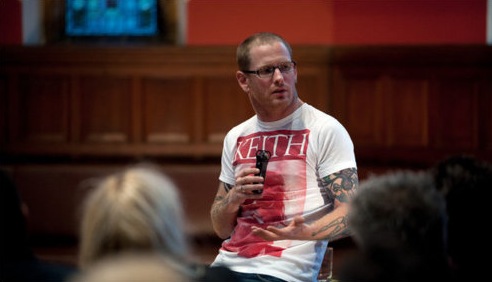Internet is a fascinating place. It can be where people lurk for prey, scour for a suitor, make new friends, get in touch with people all over the place, or just basically, just to do some plain work – like we at Stampede do. Not having a physical place to work together do not essentially limit our abilities. With all the communication avenues provided over Internet right now, most of the time they make us more productive than the time being concealed inside some office cubes – as long as the culture cultivated is right.

Here are some guidelines by Ben Chestnut, founder of Mailchimp where he grants his employees the permission to be creative:
1. Avoid rules. Avoid order. Don’t just embrace chaos, but create a little bit of it. Constant change, from the top-down, keeps people nimble and flexible (and shows that you want constant change).
2. Give yourself and your team permission to be creative. Permission to try something new, permission to fail, permission to embarrass yourself, permission to have crazy ideas.
3. Hire weird people. Not just the tattoo’d and pierced-in-strange-places kind, but people from outside your industry who would approach problems in different ways than you and your normal competitors.
4. Meetings are a necessary evil, but you can avoid the conference room and meet people in the halls, the water cooler, or their desks. Make meetings less about delegation and task management and more about cross-pollination of ideas (especially the weird ideas). This is a lot harder than centralized, top-down meetings. But this is your job — deal with it.
5. Structure your company to be flexible. Creativity is often spontaneous, so the whole company needs to be able to pivot quickly and execute on them (see #1)
We might not have any written manifesto at Stampede (perhaps we should) but I can confirm that we have done all of these. Especially #3. Yes, that’s right – you should have seen our verbal artistry nearing the end of EST.
(Photo is of Slipknot frontman, Corey Taylor giving a talk to the students at the Oxford Union’s grand hall.)
